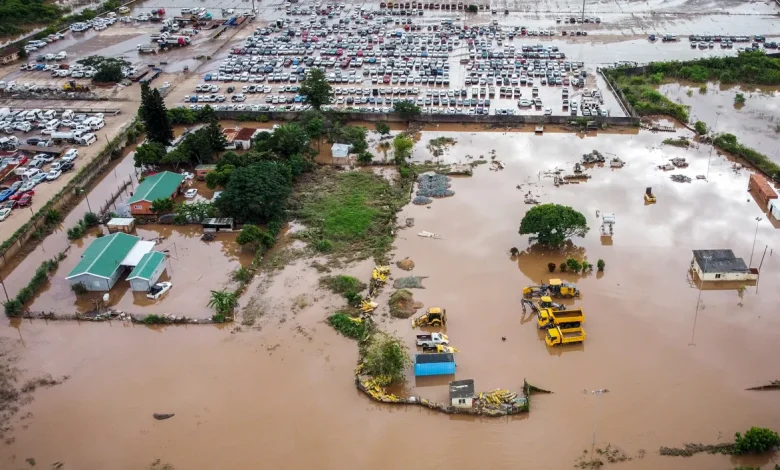Municipality Pushes for Relocation Amid Growing Climate Threats in Durban

Provincial authorities are still assessing the extent of damage caused by this week’s severe weather, according to Myeni.
The municipality is actively trying to persuade at-risk residents to relocate away from coastal regions.
Durban has been identified in recent years as one of the most flood-prone cities. The National Sea Rescue Institute noted that the floods of April 2022 were among the worst in the province’s history, resulting in over 400 fatalities and causing extensive damage to infrastructure, including disruptions to Durban’s port operations.
City Mayor Cyril Xaba, along with Myeni and Transport and Human Settlements MEC Siboniso Duma, visited the areas hit hardest by the disaster. Their inspection revealed that over 100 individuals were left without shelter after more than 30 homes were destroyed. Xaba also reported that essential public services, such as clinics and libraries, had sustained significant damage, leaving the city to determine where to direct recovery efforts first.
Witnesses to the recent landslide described how entire homes were buried beneath the collapsing earth. The torrential rain has resulted in six deaths, numerous injuries, and widespread displacement in southern Durban areas, including Amanzimtoti, Morton, Clairwood, Isipingo, and Umlazi.
ALSO READ: Trump Purges Military Leadership, Replacing Joint Chiefs Chairman CQ Brown
The provincial Department of Cooperative Governance and Traditional Affairs reported that some homes had completely buried their occupants.
Myeni acknowledged the challenges of relocating individuals to safer areas, emphasising that any change must be voluntary under the law. However, she noted that many residents had already expressed willingness to relocate.
As the chairperson of the city’s Security & Emergency Services Committee, Myeni warned that eThekwini is increasingly becoming a high-risk metro due to frequent climate-related disasters. Even internationally, people often reference eThekwini as an example of how climate change is affecting urban areas, she pointed out.
“Our planning must take climate change into account. We need to reconsider past decisions and adapt accordingly,” she said.
To encourage relocation, the municipality intends to collaborate with traditional and religious leaders, recognising that their influence may be more effective in persuading residents to leave high-risk zones.
“People may not listen to me as a deputy mayor, but they are more likely to heed advice from trusted community and religious figures,” Myeni explained.
The city also plans to engage with various stakeholders to form a discussion forum on the issue.
“We continue to engage with residents. Some are cooperating, while others resist due to concerns about transport costs and proximity to their workplaces. However, our efforts to encourage relocation remain ongoing,” Myeni stated.
A resident of Etselimnyama, one of the areas severely affected by the 2022 floods, expressed scepticism about relocation efforts, citing unfulfilled promises from the municipality.
“Many people lost their homes after the 2022 disaster, and even the promised temporary housing never materialised,” the resident said.
The April 2022 floods caused extensive devastation, with more than 400 lives lost and significant damage to homes, roads, bridges, and essential utilities such as water and electricity.
Myeni acknowledged that weather-related disasters are a growing challenge not just for eThekwini but for many other municipalities. She mentioned ongoing efforts to collaborate with the private sector to improve disaster prevention measures.
“The private sector has shown willingness to assist, but local government regulations make it difficult to implement solutions quickly. We are working on finding a model that complies with legal requirements,” she explained.
Climate change expert Professor Tafadzwanashe Mabhaudhi from the University of KwaZulu-Natal cautioned that extreme weather events are likely to become more severe.
“Some of the climate changes we are witnessing are now permanent. Our focus is on preventing further deterioration, but we should expect floods to become more frequent and intense,” he warned.





